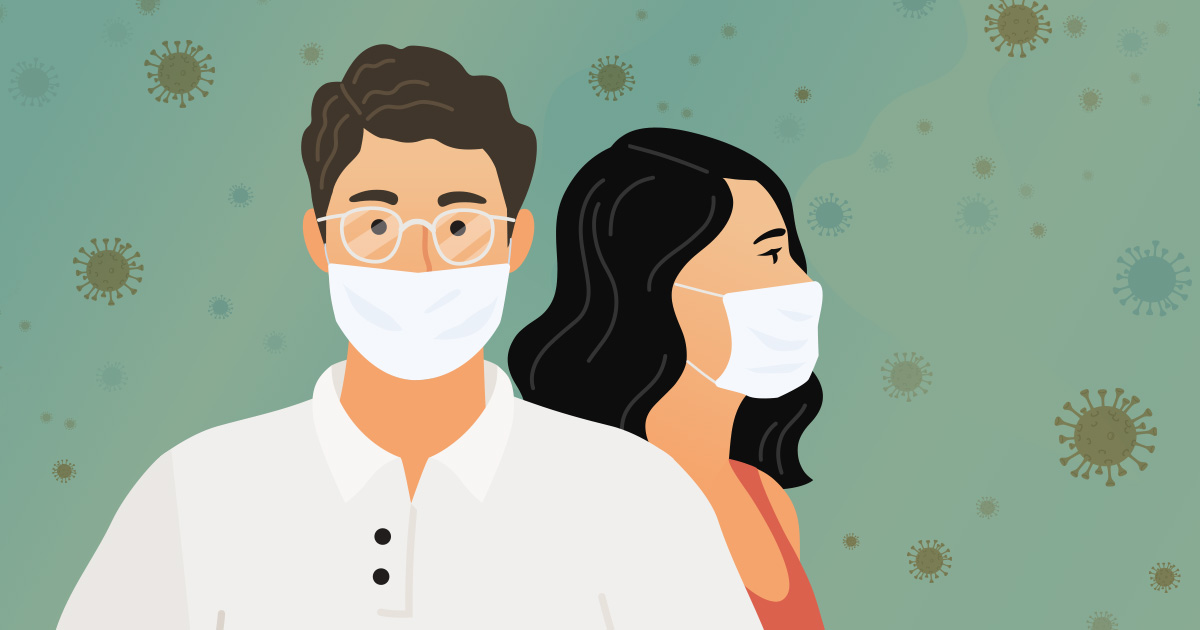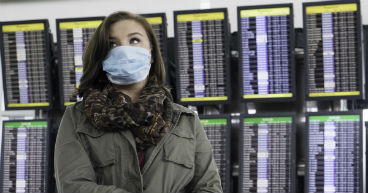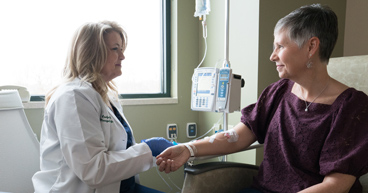
Update: The U.S. Centers for Disease Control and Prevention (CDC) now recommends everyone wear cloth face coverings in public places, such as grocery stores, where social distancing may be difficult. The CDC says these coverings may help slow the spread of COVID-19 by people who may have the virus, but are not yet exhibiting symptoms. The agency suggests making masks from old clothing or other household materials, but it does not recommend using surgical masks or N95 respirators, since those supplies are needed by health care workers.
With the number of coronavirus (COVID-19) cases increasing from coast to coast, Americans have been taking swift action to stem the spread of the deadly disease. Schools have been closed, and conventions and major sporting events have been canceled or postponed. Travel has been restricted, especially to the most affected areas around the world. Consumers are snatching up hand sanitizers, surgical masks and cleaning supplies. Health agencies and hospitals like ours are taking steps to monitor patients and reduce risks.
For patients with cancer and other illnesses, the spread of the coronavirus is particularly troubling. Elderly patients and those with existing illnesses—called comorbidities—are more vulnerable to the disease than younger, healthier patients. Studies of coronavirus patients in China show that older patients and those with comorbidities are far more likely to die of the disease than others. Cancer patients, especially those who have recently undergone treatment, may have compromised immune systems that make them vulnerable to viruses, germs and bacteria. While exposure to even a common cold may cause difficult symptoms and side effects for cancer patients, catching a virus like COVID-19 or influenza may lead to even more serious complications.
Hospitals and clinics, including the Cancer Treatment Centers of America® (CTCA) network of hospitals and Outpatient Care Centers, are taking extraordinary steps to protect patients and their families, as well as visitors and medical teams, from exposure to the coronavirus. The U.S. Centers for Disease Control and Prevention (CDC) offers hospitals a checklist of steps to take to protect patients and staff.
“As an organization committed to patient safety, we have implemented CDC-recommended screening protocols and readiness plans at each of our hospitals and Outpatient Care Centers, and we are closely monitoring CDC travel recommendations and guidelines,” says Jeffrey A. Metts, MD, Chief of Medicine at our Atlanta hospital. “We are continuously educating and training our care providers as developments occur. As always, we employ proper hand hygiene as a foundational expectation among our care providers and a critical way to reduce the risk of infection, especially among those who may be at higher risk of susceptibility for certain diseases due to compromised immune function. The safety of our patients, visitors and employees remains our highest priority.”
What can I do to protect myself from the virus?
Cancer patients and those with comorbidities may be more vulnerable to the coronavirus than others, but “the methods of prevention and protection are no different for cancer patients than they are for the general population,” says Mashiul Chowdhury, MD, Director of the Infectious Disease Program at CTCA®. “Still, cancer patients need to be extra vigilant.” And while there is no harm in wearing a surgical mask, Dr. Chowdhury says it should not replace more prudent measures patients should take to limit exposure and protect others, such as:
- Washing your hands frequently with warm water and soap
- Using hand sanitizers and disinfectants approved by the Environmental Protection Agency
- Avoiding large crowds. Consider self-isolation or self-quarantine if you are at risk or think you have been exposed
- Practicing "social distancing," if you must go out, by keeping space between you and others
- Avoiding unnecessary travel
- Avoiding touching your mouth, eyes and nose
- Using a disposable towel or tissue to cover your nose and mouth when you sneeze or cough, and washing your hands after
- Avoiding people who are sick—and staying home if you’re sick
- Disinfecting countertops, door handles, telephones and other frequently touched objects
- Being vigilant about avoiding exposure to illnesses such as influenza and measles, and requiring the same of your family and caregivers (And remember, while vaccines may help curb the spread of those diseases, there is no vaccine for COVID-19.)
- Cancer patients are considered at higher risk from COVID-19. For your safety, we advise that you limit unnecessary travel. When necessary, it is recommended that you travel by car and avoid large crowds.
Coronavirus facts
What is the coronavirus?
Coronaviruses in general are common viruses that may cause colds or more serious respiratory illnesses. COVID-19, considered a new strain of the virus, was discovered in China in December and has now spread around the world.
What are the symptoms?
The U.S. Centers for Disease Control and Prevention (CDC) continues to update the list of symptoms COVID-19 patients may experience. Its latest update says common symptoms of the infection include a cough and shortness of breath or at least two of the following:
- Fever
- Chills
- Repeated shaking with chills
- Muscle pain
- Headache
- Sore throat
- New loss of taste or smell
When do symptoms appear?
Symptoms can appear as soon as two days or as long as two weeks after exposure.
What should I do if I have symptoms?
Call your doctor immediately, especially if you have traveled recently or think you have been in contact with someone diagnosed with the virus.
If you are in active treatment and are concerned about how the COVID-19 situation may impact your care, please contact your care team.


